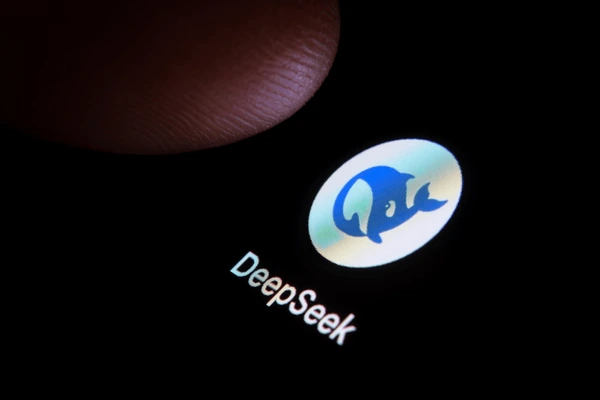Are Remasters a Plague or an Opportunity?
November 15, 2022
This article first appeared in the fall 2022 Mace & Crown magazine issue.
Ever since they took off in the 70s, video games have had an enormous impact on pop culture and spawned a massive array of genres full of fascinating and original stories. Being born in the 2000s gave me the opportunity to experience everything from classic games like Contra to more modern icons such as Halo or Dark Souls. A long time has passed since original consoles like the Xbox and Playstation revolutionized the industry and introduced modern hardware that allowed for more ambitious projects. Plenty of amazing titles have come out throughout the years, but recently remakes and remasters have gained a lot of popularity within the gaming community as opposed to original releases.
A lot of the people in the video game industry grew up playing in arcades before they made game-changing technological advancements in the industry. I can still remember the fascination of playing 8-bit classics as a kid, then upgrading to better hardware that could handle three-dimensional environments smoothly. It’s an unforgettable experience. While these dated graphics are no longer as impressive, what can never truly be lost to time is the beauty of mesmerizing gameplay and a memorable story. So many original ideas and plots came to be thanks to this avenue of entertainment, which can often offer a more immersive experience than watching a movie. It only makes sense for older generations to want to gift those moving tales to the younger generations.
Unfortunately, the video game industry, for better or worse, is still an industry. Whether it’s called a redux, reboot, or remake, it’s still a redo of something from an older game. The original game could be an amazing experience even today. The dated controls and graphics might not bother an older audience thanks to a dose of nostalgia and simply having grown up with original releases. Remasters aim to bridge the gap between the gameplay and tech limitations that could have affected production with the higher standards of today’s games. However, it doesn’t always work out the way it was supposed to.
Several reworks and remasters have been released over the last couple of years. Plenty of these have successfully given an older game new life by perfecting the design quality or improving the game as a whole. Take the Resident Evil 2 remake released in 2019; the difference was night and day compared to the original game released in 1998. The way the game plays out, the dynamic effects, the sound design, and more are all improved and tweaked to give a unique experience. Thanks to advancements in technology, nostalgic players can enjoy a re-imagined playthrough of a cult classic they grew up with. Younger audiences can experience a fresh playthrough of a game without the limitations of first generation consoles and without having to rely on a buggy emulator.
Resident Evil 2’s success wasn’t just due to nostalgia or because it’s a well-known franchise. The reason Resident Evil 2 was such a hit was because it preserved the overall essence of the game. It didn’t make any compromises that would’ve changed the overall tone or trajectory of the story, nor did it alter the gameplay so much that it didn’t feel like a part of the Resident Evil franchise. In the realm of remasters, games like “Mass Effect: Legendary Edition” added improved graphics and game fixes that made the experience more enjoyable.
Even though there have been many remakes and remasters that became great hits, there have also been great misses that did more harm than good to the game then was “improved.” One of the biggest flops in the world of remasters was the Grand Theft Auto trilogy. The supposed remaster didn’t just fall flat but rather crashed and burned in front of everyone unfortunate enough to purchase the game. Not only were the assets botched, making the game look worse than the original despite “improvements,” it was also littered with game-breaking bugs that made it hard to play. Sure, at the end of the day Grand Theft Auto III’s story is still the same, but every other aspect of the game got a sledgehammer makeover instead of a proper renovation.
Remakes were no exception to product releases that received a heavily unwelcoming reception. Warcraft III: Reforged, a real-time strategy game, was an utter disappointment for the Warcraft community. Not only did the game essentially force you to “upgrade” your original copy by installing a new update that would change it to Reforged, but it also brought out bugs that didn’t infest the game beforehand. The game was a downgrade considering it had more bugs and glitches, the artwork was not improved, and the gameplay was tweaked in such a way that made it apparent there was no clear direction. Even Blizzard admitted that the game did not have precise goals on whether to be a remaster or a remake. The game was an underbaked product in desperate need of a release date extension. What really aggravated the fanbase was how Blizzard made it official that any community-made maps were automatically made property of Blizzard. A whole list could be made for the last two games mentioned.
It is becoming concerning that remakes and remasters are starting to dominate the market over original releases.
This isn’t an outlandish concern. Activision took full advantage of a beloved game when they decided to release the Call of Duty: Modern Warfare remaster along with the purchase of the less anticipated, less successful, Call of Duty: Infinite Warfare (IW). It was a cheap shot at the community for Activision to essentially force you to buy IW so you can enjoy the revolutionary masterpiece that was Modern Warfare.
The massive issue was that gaming developers didn’t put in the effort they should have and did not bother to actually “preserve” the essence of the game. It seemed more like an attempt to cash in on a cash cow that could be exploited once more because nostalgia sells. Some remakes and reboots just aim to reap in the money that can be obtained by using a beloved and pre-existing series’ name.
Looking ahead to the next few years, one can see that The Last of Us: Part One is already getting a remaster despite not even reaching 10 years of age and just having had one for the current-gen consoles. Other big games like Dead Space, The Witcher III: Wild Hunt, System Shock, and Tom Clancy’s Splinter Cell are just a few in the catalog of heavily anticipated remakes and remasters that are going to hit the market.
While remasters and remakes are welcomed when properly executed, it’s also great to get fresh installments regardless of if it’s a sequel or the first of many. Modern Warfare from 2019 was a great remake that offered a fresh spin on the original series. There are plenty of references to the original, but it was a completely different story with brand new sights and settings.
However, it’s also amazing to see a sequel that progresses a story or offers a new perspective. The developers of Psychonauts 2 did this and their game was adored by the community for its refreshing story that showcased how far the characters and developers have come since the 2005 release of the first installment. Everyone loves a fresh start. However, if game developers have already had a fresh start and can keep moving, regardless if the reception was good or not, it should be the preferred step. That’s what happened with The Witcher series and the progression from the first game to third shows perseverance and passion for the work.
At their best, remakes and remasters are done with a love for the game and the fanbase. Remasters and remakes offer beautifully crafted games a breath of new life and a chance to showcase their beauty to a group of people who could’ve never experienced it the way older gamers have. At their worst, these releases do the opposite and do not display as much effort as they should. Gaming companies might look at these classic games as nothing more than an opportunity to generate a gluttonous amount of revenue.
If the gaming industry only relies on “brand new starts” from older games, then how will creativity and risk flourish the way they used to? After all, it’s what gifted the gaming community with so many phenomenal stories and gameplay. One can’t help but ask if these remakes and remasters are truly done with the intention of sharing an incredible adventure while staying true to the source material and the fans. It’s getting hard for the community to have faith that games will be short of a next-gen port with better graphics. Time will surely tell, but the community shouldn’t allow nostalgia to get the better of them.








